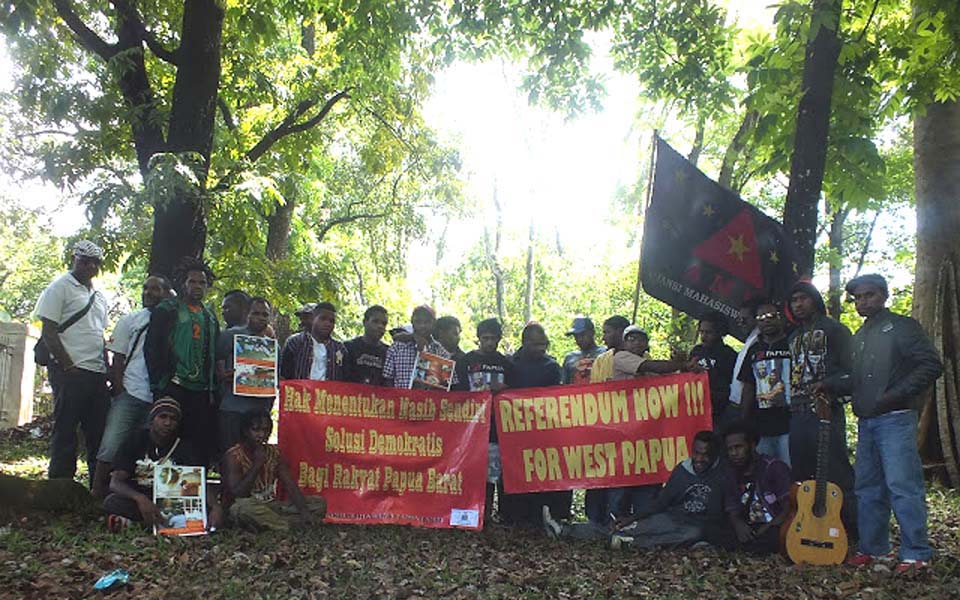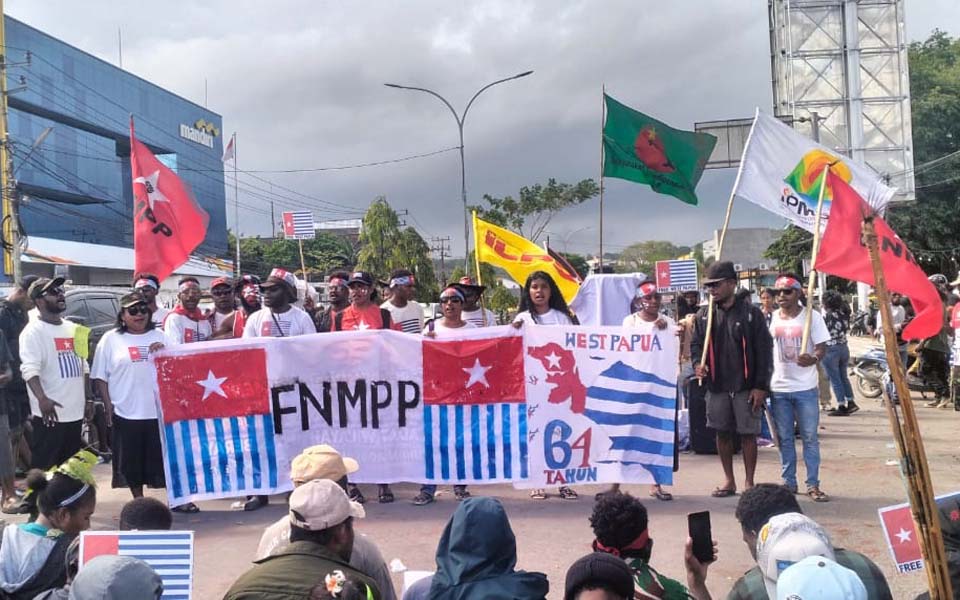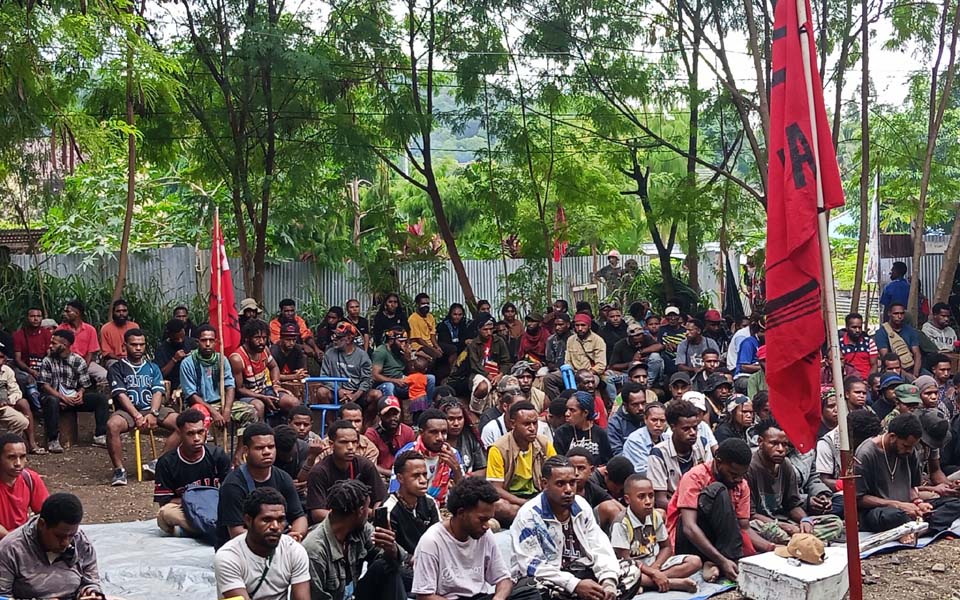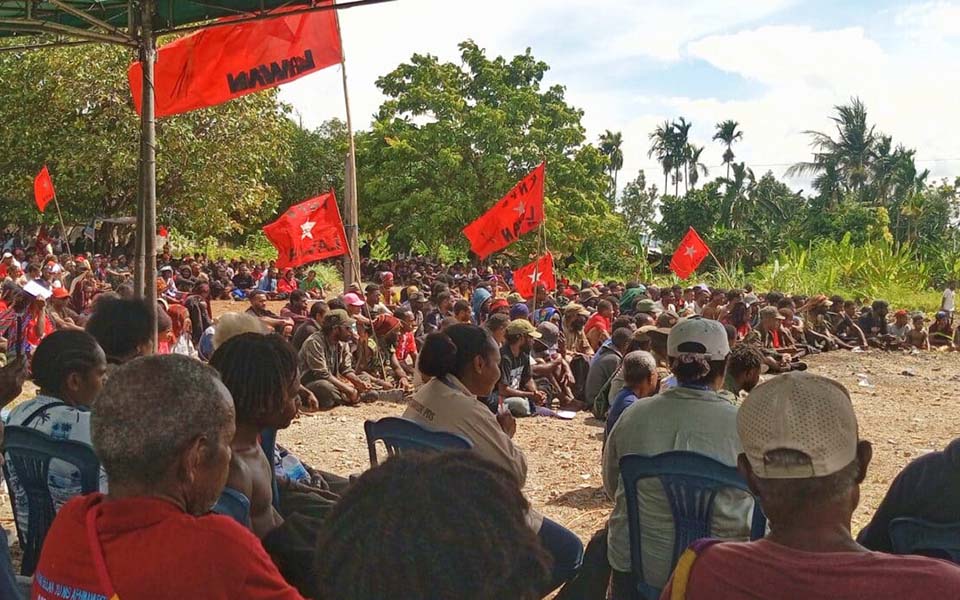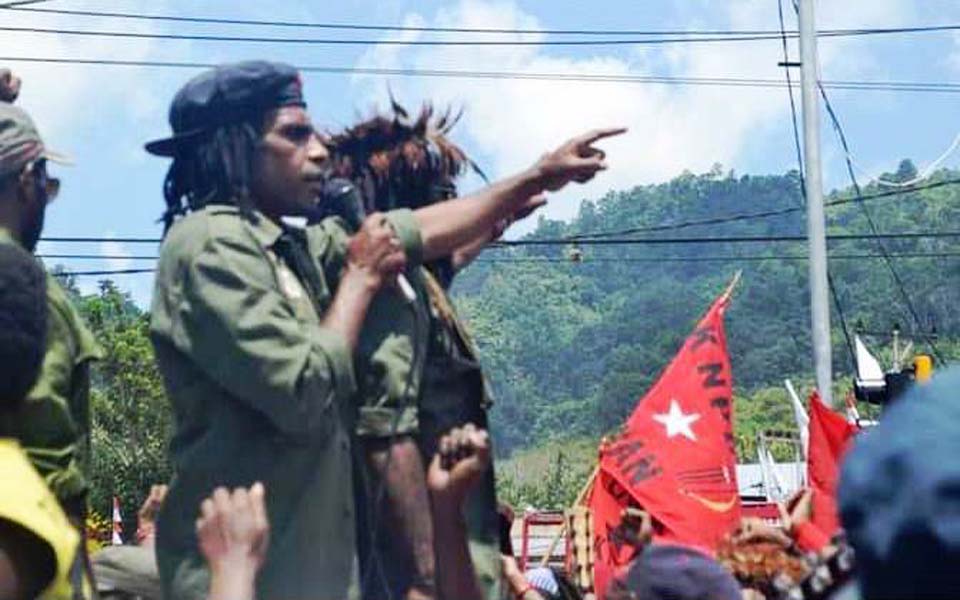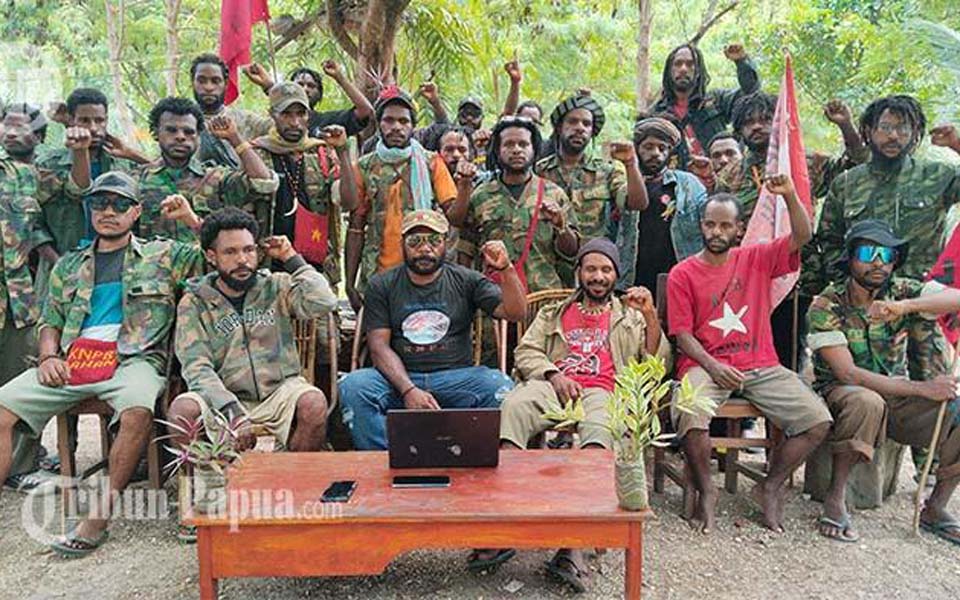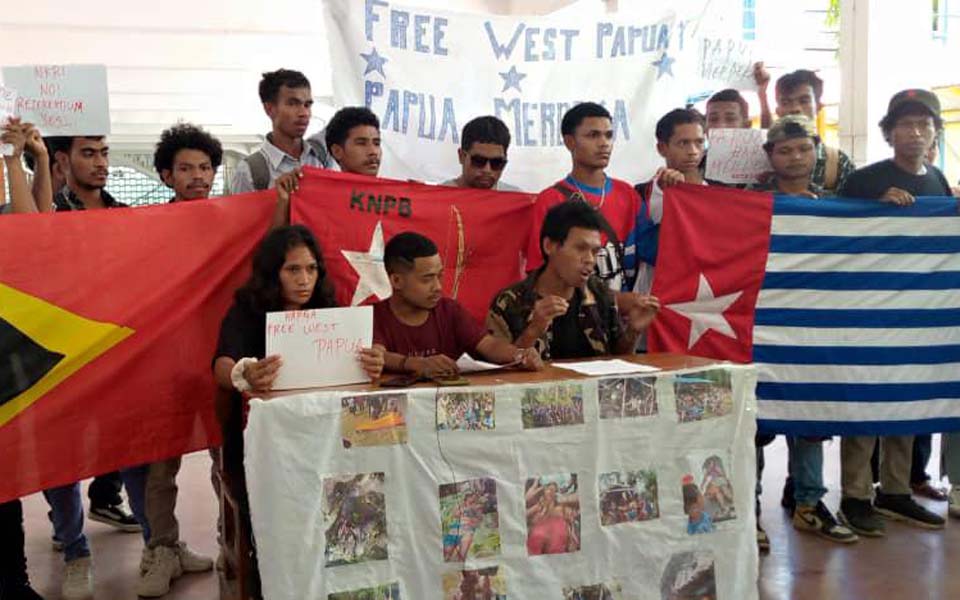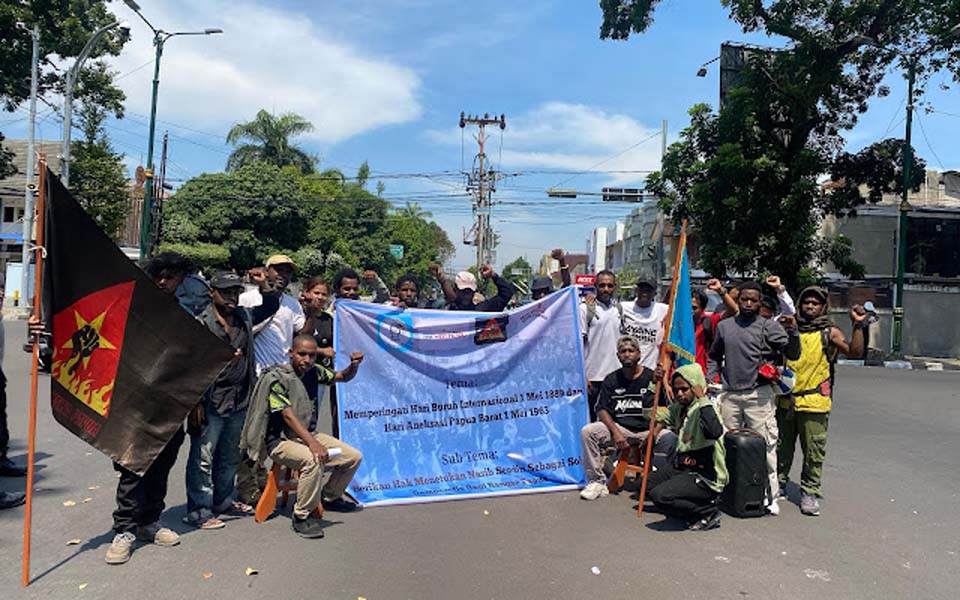Yogyakarta – “Self-determination, the Democratic Solution for the Papuan People”, shouted West Papuan students protesting the New York Agreement of August 15, 1962, and supporting the opening of a Free West Papua Campaign office in the Netherlands today, during an action coordinated by the Papuan Student Alliance (AMP) on Thursday August 15 in the Malioboro shopping district in the Central Java city of Yogyakarta.
The demonstration was one of a series of activities conceived by the Yogyakarta city AMP committee, included as part of the Art Platform night on Wednesday evening.
According to Selangkah Magazine’s observations, the protesters began gathering on Jl. Abu Bakar Ali, north of Malioboro, then marched to the zero kilometre point in front of the central post office. The protesters adorned their bodies with three colours: red, white and blue, the three colours of the Papuan national flag, the Morning Star.
“New York Agreement was legally flawed, and cannot be accepted. The Papuan people who were the subject of the issue were not invited to sit down together, to discuss where to go. The Papuan people were not involved”, shouted one of the Papuan students in a speech.
The students were protesting the contents of the New York Agreement (Pepera), specifically articles 14-21 that regulated an act of self-determination for the Papuan nation based on the international practice of “One Man One Vote”, one person one vote.
Indonesia, which was given the authority to prepare the Pepera, did not follow this stipulation, and instead replaced it with “musyawarah” [a traditional consensus decision making process – JB] where the around 800,000 Papuan population at that time were only represented by 1,025 people, that is to say it was not the Papuan people who voted in the Pepera.
The students also highlighted the PT Freeport gold and copper mining company work contract agreement that was made in 1967, long before Papua had determined its course (Papua was still under a status quo or without ownership).
The Papuan students believe that the New York Agreement, which was made without involving the Papuan people as subjects of the issue, was the basis of the problem, after the annexation of West Papua by Indonesia through the Triple Commands of the People (Trikora) by Indonesia founding President Sukarno at the Yogyakarta North Square on December 19, 1961, 18 days after the country of Papua was formed.
On this basis, the AMP issued three political demands. First, urging all related parties to acknowledge and give the right to the Papuan people to self-determination as the only democratic solution for the Papuan people.
Second, urging all parties to immediately call for a halt to operations throughout the land of Papua by multi-national corporations owned by imperialist countries such as Freeport, BP, LNG Tangguh, Mecdo, Corindo and others.
Third, the AMP asked that all Indonesian military and national police immediately be withdrawn from the land of Papua because they are the mother of all violence in the land of Papua.
After reading out a statement, the action concluded with prayers and the hundreds of Papuan students disbanded.
In the Central Java city of Solo meanwhile, police sealed a house lived in by Papuan students who were in the middle of preparing to hold a demonstration on Thursday morning. As a result the demonstration was cancelled.
Selangkah Magazine has been unable to confirm why the police sealed the house although a reliable informant said it was done to thwart the planned action.
In the West Java provincial capital of Bandung, the Bandung AMP committee also held an action, protesting the New York Agreement that failed to involve the Papuan people, and supporting the opening of the Papua campaign office in the Netherlands.
The Papuan students that make up the AMP are in agreement that only self-determination as a nation, which is honest and democratic – not like the 1969 Pepera – is the best solution for the people of West Papua. (AD/BT/MS)
Notes
Trikora – After the Dutch announced the formation of a Nieuw Guinea Raad on April 1961, with the intention of creating an independent Papuan state, Indonesia’s founding President Sukarno declared a military confrontation in his Tri Komando Rakjat (Trikora, Triple Commands of the People) speech in Yogyakarta, on 19 December 1961.
[Penentuan Nasib Sendiri, Solusi Demokratis bagi Rakyat Papua – Majalah Selangkah. Kamis, 15 Agustus 2013. Translated by James Balowski.]





